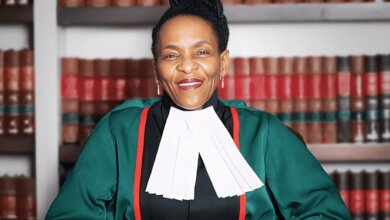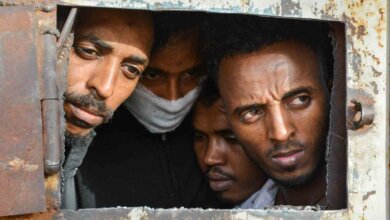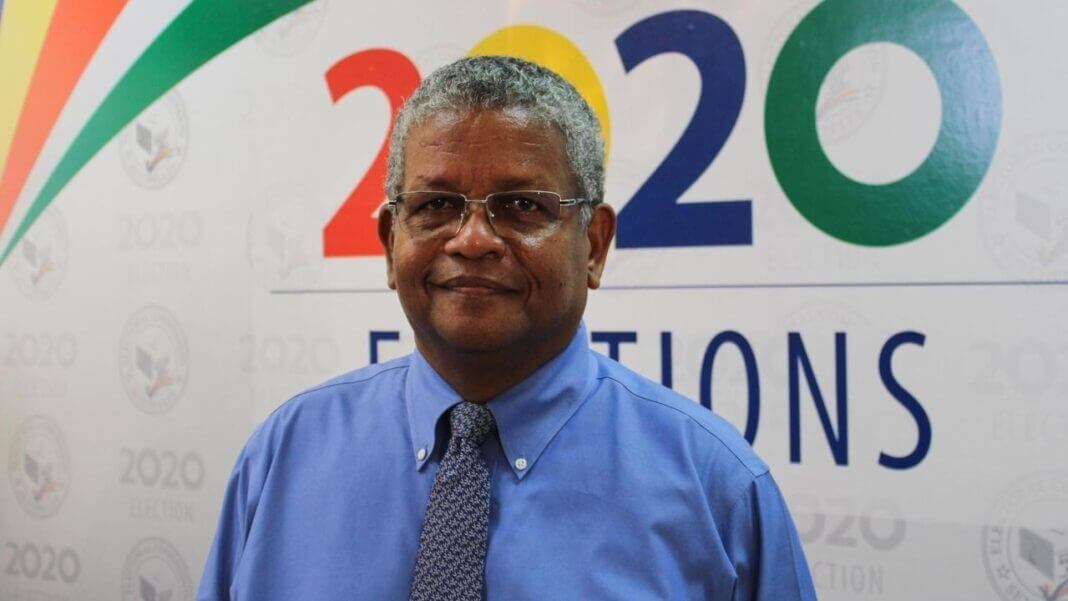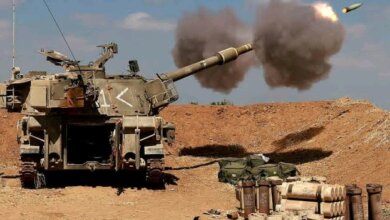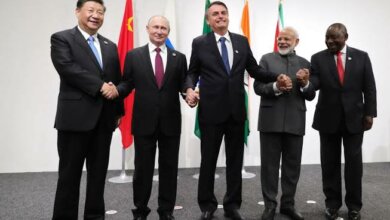The Big Six – heroes of Ghana’s independence
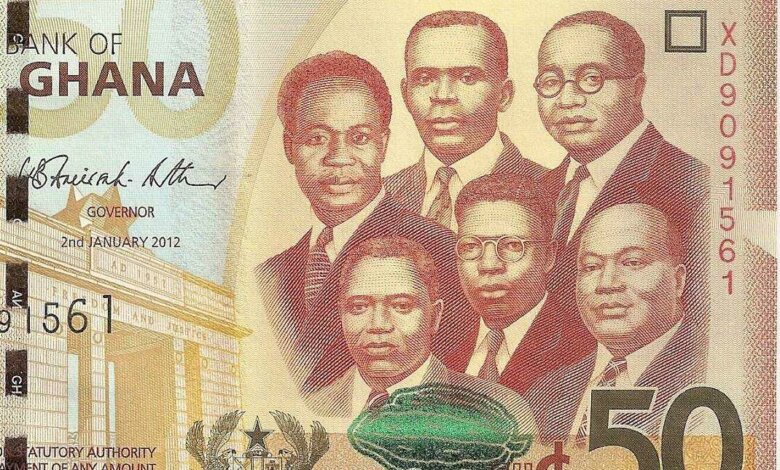
Ghana’s founding fathers known as “The Big Six” made a lasting mark on the country’s history, exhibiting the spirit of bravery, dedication, and patriotism. These exceptional people were instrumental in the fight for Ghana’s independence from colonial rule.
Ghana formerly called the Gold Coast, gained independence in 1957, and as a result, became a Commonwealth country. The country became the first nation in Sub-Saharan Africa to get independence from European colonialism.
The names of the Big Six have persisted in Ghanaian history to this day. Their efforts and sacrifices are woven into the fabric of Ghana’s history, reminding the country of the strength of unity and the resilience of the human spirit.
1. Kwame Nkrumah
Osagyefo Dr. Kwame Nkrumah was born on September 21, 1909. He grew up in a rural village called Nkoful in the Nzema region. Nkrumah joined a Catholic mission school in Half Assini, where he later worked as a teacher in the government training institution in Accra.
He got a teaching certificate in 1930 at Prince Walls College and joined an anti-colonial resistance movement known as Black Nationalism. In 1935, Kwame Nkrumah went ahead to further his education at Black Lincoln College in Pennsylvania in the United States of America.
Key to note is that as he continued studying, Nkrumah earned a living working as a dishwasher. In 1945, Nkrumah went to London to further his education at the London School of Economics, where he studied a PhD in Anthropology.
Kwame Nkrumah’s close relationship with Trinidadian involved him in the needs of Black Nationalism, leading to racial discrimination’s end. He founded the Black African Students Association in Canada and America.
He was nominated as the general secretary of the West African Secretariat in the year 1945. He was later selected as the regional secretary of the Pan African Federation, where he organized the fifth Pan African Congress.
The conference was presented by various countries such as Nigeria, Nyasaland, the Gold Coast, Liberia, and Togoland. He later returned to Ghana in 1947, where he met with Dr. J.B Danquah, who saw him join the United Gold Coast Convention.
The convention wanted to end the Second World War. During that period, Kwame Nkrumah established the Ghana National College, and no one got involved. Later, it was known as the University of Ghana and became the first National University.
He was then imprisoned because of a misunderstanding of his party, which was engaged in a strike and led to his sentence of three years in Fort James prison in Accra. In 1951, he won a landslide victory despite his absence, which resulted in his release on 12 February. Kwame died of prostate cancer in April 1972 at the age of 62 while in Romania.
2. Joseph Boakye Danquah
J.B Danquah was born in the year 1875. He showed much interest and hard work in his education. In 1912, he finished his standard seven examinations and became a clerk later.
He worked for a well-known lawyer, Vidal J. Buckle, who encouraged him to know more about Philosophy and law. J.B Danquah worked as a Gold Coast Supreme Court clerk and assistant secretary for the paramount chief’s conference.
J.B Danquah got sponsored by his brother, Nana Sir Ofori Atta, to further his education in the UK, where he studied Philosophy and law. Later, he was awarded a London Matriculation certificate on completion, a degree in LL.B, and B.A.
He received his philosophy degree before coming back to Ghana. He was the first person in the country to come up with a daily newspaper, “The Times West Africa”, in 1931. Danquah was among those who established the United Gold Coast Convention (UGCC). The members of Ghanaian chose Paa Grant to be their president.
Danquah, Nkrumah, and the other Big Six got arrested on 12 March 1948. Later, they got released after people in Ghana protested for their arrest. In 1960, Danquah challenged Nkrumah for the presidency but lost the elections.
He became very bitter with Nkrumah and was arrested for the second time in 1961. He was released in 1961. J.B Danquah organized to overthrow Nkrumah but was arrested on 8 January 1964. He unexpectedly died of a heart attack while in detention at Nsawam Medium Prison on 4 February 1965.
3. Ako Adjei
Ako Adjei was born on 16 June 1916. He was the son of Johanna Okailey and Samuel Adje. Ako worked as a city worker but quit to continue his education.
While studying at Lincoln University, he met Nkrumah, with whom they had a good relationship. Ako Adjei later returned to Ghana, where he was informed that a General Secretary was needed to take over the United Gold Coast (UGCC). Ako advised Nkrumah to take over the seat.
He challenged Nkrumah in the Accra Central elections, but Nkrumah defeated him. Ako Adjei was a former minister of CPP. He decided to come back the third time when he was jailed for threatening Kwame Nkrumah.
Ako Adjei, the final surviving member of the renowned Big Six, passed away on 14 January 2002 at age 85. He succumbed to a brief illness while receiving treatment at Korle-Bu Teaching Hospital.
4. Edward Akufo-Addo
Edward Akuffo-Addo born 26 June 1906, is among the famous Big Six who fought for independence. In 1947, he became a founding member of the United Gold Coast Convention (UGCC) and was one of the “Big Six” detained after disturbances in Accra in 1948.
From 1949 to 1950, he was a member of the Gold Coast Legislative Council and the Coussey Constitutional Commission. After independence (1962–64), Akufo-Addo was a Supreme Court Judge, one of three judges who sat on the treason trial involving Tawia Adamafio, Ako Adjei and three others after the Kulungugu bomb attack on President Kwame Nkrumah and for doing so was dismissed with fellow judges for finding some of the accused not guilty.
From 1966 to 1970, Akufo-Addo was appointed Chief Justice by the National Liberation Council (NLC) regime, as well as Chairman of the Constitutional Commission (which drafted the 1969 Second Republican Constitution). He was also head of the NLC Political Commission during this same time period.
From 31 August 1970 until his deposition by coup d’état on 13 January 1972, Akufo-Addo was President of Ghana in the Second Republic. Real power rested with the prime minister, Dr Kofi Abrefa Busia. On 17 July 1979, Akufo-Addo died of natural causes.
He was the father of Nana Akufo-Addo, the current President of the Republic of Ghana.
5. Emmanuel Obetsebi-Lamptey
Emmanuel Odarkwei Obetsebi-Lamptey born 26 April 1902 was a political activist in the British colony of the Gold Coast. He was the son of Jacob Mills-Lamptey and Victoria Ayeley Tetteh. Lamptey studied at Accra Wesleyan School and later joined Royal School, where he finished his education.
He was one of the founding fathers of Ghana and one of the founders and leaders of the United Gold Coast Convention (UGCC) known as “The Big Six”. He was the father of NPP politician Jake Obetsebi-Lamptey. He played a vital role in the Big Six.
He was recognized for his leadership. He was bold, confident and inspired his people to have hope. His leadership role being played well brought a change to the political, economical and social standards required to pronounce Ghana as an independent country from its colonial masters.
His well-established legacy is reflected in Ghanaian History books, street names, and the Obetsebi-Lamptey Interchange on the Ring Road West in Accra, Ghana. A monument will be mounted in his memory after completion of the interchange. Later, Obetsebi suffered from cancer, which led to his death.
6. William Ofori Atta
William Ofori was born in 1910. He went for further studies in the United Kingdom. William ruled the Coussey Commission together with the Big Six Ghana heroes.
William Ofori Atta played a significant role in Ghanaian politics. He was one of the founding members of the United Gold Coast Convention in 1947 and later won a seat in the Akim Abuakwa constituency during the 1951 Gold Coast election. He died in 1988 and was given a state burial.
As a leader of the United Party, he opposed Dr. Kwame Nkrumah’s government. However, Ofori Atta was detained by Nkrumah during the first republic under the Preventive Detention Act. William Ofori Atta died in 1988 and was given a state burial.
Abeeb Lekan Sodiq is a Managing Editor & Writer at theafricandream.net. He’s as well a Graphics Designer and also known as Arakunrin Lekan.

